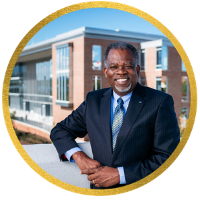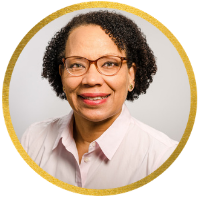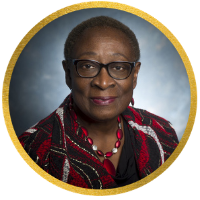 In Part 1 of our Caribbean American Heritage month series, we explained the importance of the culture in the U.S.; however, the impact can be felt much closer to home—on UAB’s campus.
In Part 1 of our Caribbean American Heritage month series, we explained the importance of the culture in the U.S.; however, the impact can be felt much closer to home—on UAB’s campus.
For the last part of our series, we will show the breadth of Caribbean American heritage at UAB through three spotlighted individuals.
The first is Eric Jack, Ph.D., Dean of the UAB School of Business. Dr. Jack was born in San Fernando, on the island of Trinidad and Tobago—where he attended high school before moving to the U.S.
Dr. Jack explains, “Since I spent my formative years in Trinidad and Tobago, my Caribbean heritage has certainly influenced my character and values. Growing up in this melting pot, it was easy to fully embrace and respect people of all cultures and religions.”
After moving to the U.S., Dr. Jack earned his bachelor of science in industrial engineering from Georgia Tech, his MBA from Wright State University, and a Ph.D. in Operations Management from the University of Cincinnati.
Before beginning his academic career, he served in the U.S. Air Force as an officer for 21 years. Here his responsibilities included facilities planning, design construction, and maintenance. He adds, “as a naturalized American and retired military officer, over 65% of my years have been spent right here in the U.S. So, I really appreciate the positive contributions that’s Americans make in support of the global community.”
In addition to his role as the dean, Dr. Jack is the Wells Fargo Endowed Chair in Business Administration and Professor of Management. He can also be recognized by his involvement in Leadership Alabama Class XXVIII, Leadership Birmingham Class of 2014, Rotary Club of Birmingham, The Innovation Depot, Founders Advisors LLC, Malcovery Security LLC, the Birmingham Committee on Foreign Relations, United Way of Central Alabama, and the Southern Business Administration Association.
 Next, we have Allyson Hall, Ph.D., Director of Graduate Programs in Healthcare Quality & Safety at UAB in the Department of Health Services Administration, and Co-Director for the Center for Outcomes Effectiveness Research and Education.
Next, we have Allyson Hall, Ph.D., Director of Graduate Programs in Healthcare Quality & Safety at UAB in the Department of Health Services Administration, and Co-Director for the Center for Outcomes Effectiveness Research and Education.
Dr. Hall received her Ph.D. from Johns Hopkins University, Bloomberg School of Public Health, and obtained her MHA and MBA from the University of Florida.
Over the past 30+ years, she has studied access and systems to care for vulnerable populations and has a long-standing interest in Medicaid. Currently, an emphasis of her work has been on improving the transition of care from hospital to home and reducing care fragmentation. As seen with the COVID-19 pandemic, there are numerous barriers to healthcare in underserved and minority populations. To share her expertise, Dr. Hall has also been a part of several COVID-19 related projects.
Lastly, we shine a light on Pauline Jolly, Ph.D., MPH, Professor Emerita in the UAB School of Public Health and Scholarship Administrator for the Central Alabama Caribbean American Organization.
Dr. Jolly is from Jamaica, where she completed undergraduate studies at The University of the West Indies—majoring in Biological and Natural Sciences.
After moving to the U.S. In 1975, she received her Masters’ of Science from Tuskegee University, Doctor of Philosophy in Science Education from Louisiana State University, Baton Rouge, Master of Public Health, and Doctor of Philosophy in Immunology and Infectious Diseases from Johns Hopkins University.
Dr. Jolly came to UAB in 1991 as an Assistant Professor of Public Health. Since then, she has been promoted to Associate Professor (1997) and full Professor (2003). She has been the Director of the UAB Minority Health International Research Training (MHIRT)—first funded by the Fogarty International Center at UAB in 1995 and then by the National Institute on Minority Health and Health Disparities, National Institutes of Health—and has led UAB efforts in biomedical, epidemiological, and behavioral research on HIV/STIs and other infectious and chronic diseases at renowned institutions in Ghana, Kenya, Tanzania, Swaziland, Zambia, India, Bangladesh, Nepal, Peru, Guatemala, Trinidad and Tobago, and Jamaica.
been the Director of the UAB Minority Health International Research Training (MHIRT)—first funded by the Fogarty International Center at UAB in 1995 and then by the National Institute on Minority Health and Health Disparities, National Institutes of Health—and has led UAB efforts in biomedical, epidemiological, and behavioral research on HIV/STIs and other infectious and chronic diseases at renowned institutions in Ghana, Kenya, Tanzania, Swaziland, Zambia, India, Bangladesh, Nepal, Peru, Guatemala, Trinidad and Tobago, and Jamaica.
As a professor, researcher, mentor, director, and advisor, her impact has been felt by countless faculty, staff, and students across UAB’s campus and the world. Dr. Jolly received the Ellen Gregg Ingalls/UAB National Alumni Society Award for Lifetime Achievement in Teaching in 2014 and a Fulbright Specialist Scholar Award to the Institute of Public Health, Ho Chi Minh City, Vietnam, in 2018.
When asked what her heritage means to her, Dr. Jolly expressed, “The cultural heritage of Jamaica is a blend of cultural historical norms of slaves, Europeans, and other immigrants such as the Chinese and Indians. European influences persist in medicine, Christian worship, and the arts.”
She adds, “African influences persist in Jamaican Creole language, cuisine, proverbs, drumming, the rhythms of Jamaican music and dance, religion and traditional medicine. My heritage instilled in me characteristics of respect, caring, acceptance, fairness, vitality, creativity, readiness to take on challenges and confidence to excel!”
These individuals serve as excellent reminders of the impact Caribbean Americans have at UAB and how diversity serves as a cornerstone for creating an institution that inspires and empowers the creation of knowledge that changes the world.